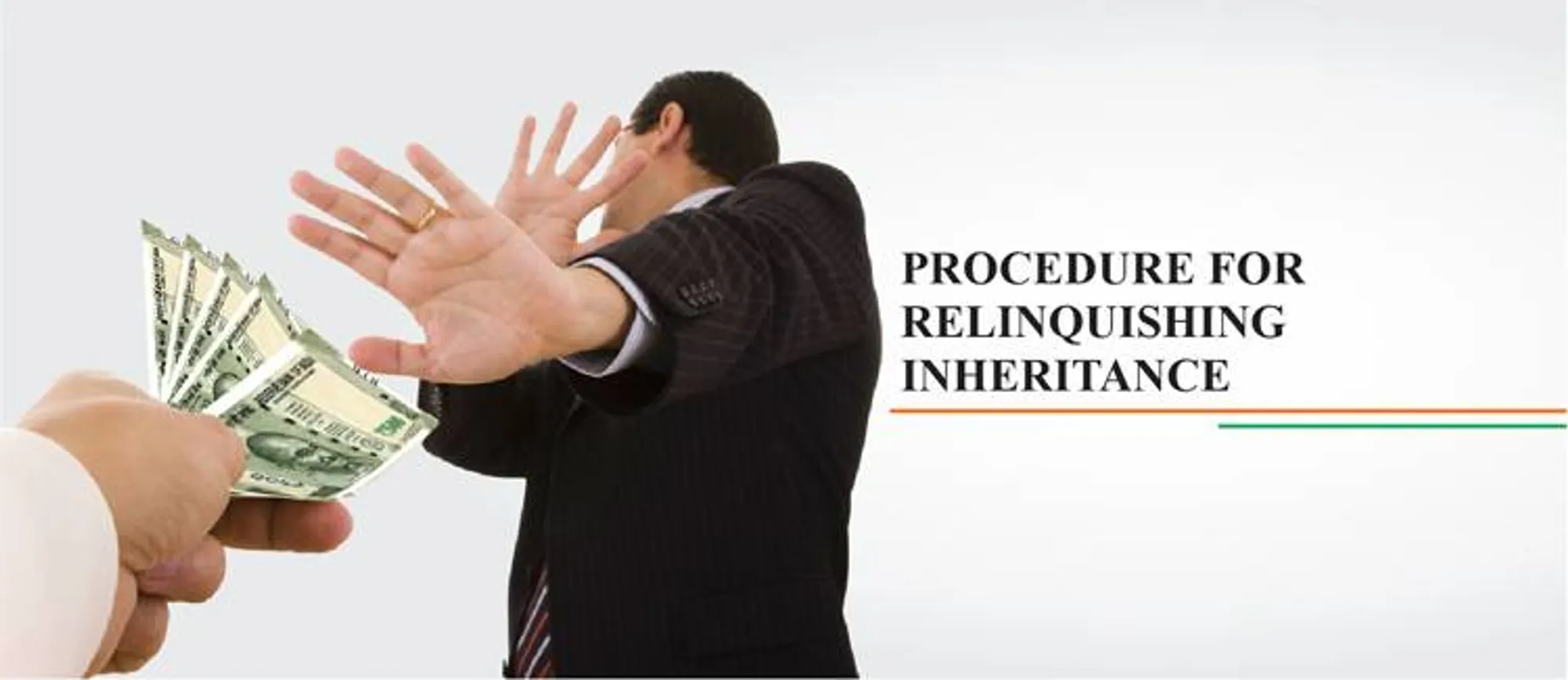The term “Relinquishment” refers to the abandoning and surrender of the rights, title and interest, by one co-owner of a property in favour of the other co-owners. Relinquishment deed is a legal document where under a legal heir gives up or releases his legal rights in an inherited, parental or joint property in favour of other heirs. The consequence of Relinquishment of one co-owner’s share is the enlargement of the shares of the other co-owners.
Formation of relinquishment deed: – The deed is drafted by a legal expert as per the wishes of the co-owner who wants to give away his shares. For the execution of the same stamp paper is purchased.
Registration of Relinquishment deed: – Relinquishment deed is one of the documents which fall under Sec 17 of the Registration Act, 1908 and hence it is compulsory to get it registered at the concerned sub-registrar office.
After the registration fee is paid, both the parties and 2 witnesses visit the sub-registrar office on the fixed day for the registration of Release Deed. Some important facets to be considered here are:-
Relinquishment of property cannot be made in favour of a person other than a co-owner.
If a Relinquishment is made in favour of a person who is not a co-owner, the transaction shall be treated as a gift and would attract the same stamp duty as applicable on gift deed/ conveyance deed.
A relinquishment deed is subject to close scrutiny by the Sub-Registrar because it is often used to save the stamp duty payable on a gift deed.
A release or a relinquishment deed is irrevocable even if it is made without any consideration. For a valid Relinquishment, the property in question must be owned by more than one person.
Registered Relinquishment Deed is collected after a week.
A Relinquishment Deed or a release deed is generally used to transfer ownership when a person dies without leaving behind a will and his legal heirs inherit his property as per the provisions of the Hindu Succession Act 1956. In such a case, relinquishment deed is used for transferring the shares of the legal heirs in favour of one of them and then getting the mutation done in favour of the legal heir in the records of government.
In Telugu Kishna Mohan and Another vs Smt. Boggula Padmavathi and others, it has been held that an unregistered relinquishment deed is not admissible in evidence for want of registration under Section 17 of the Indian Registration Act.

